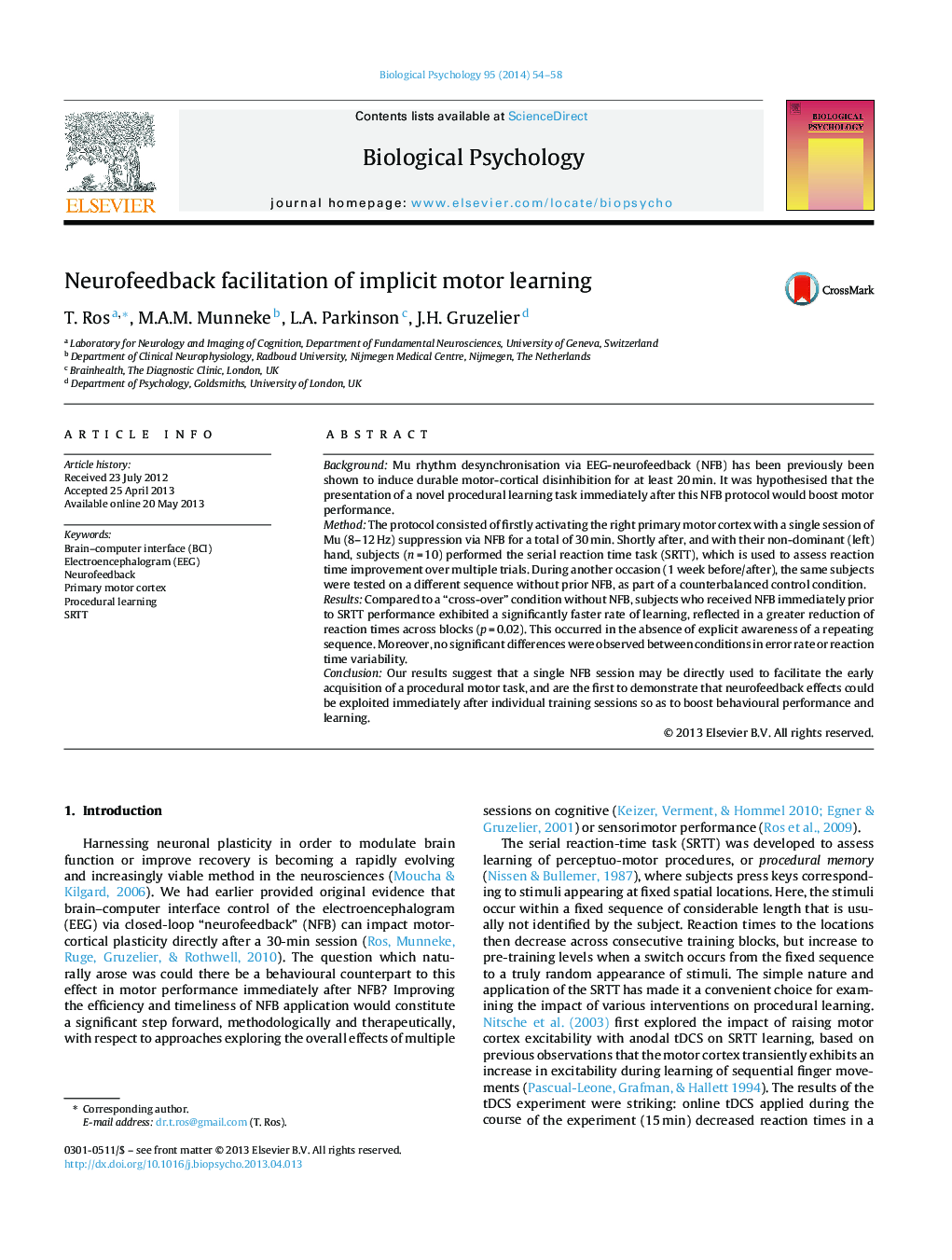| Article ID | Journal | Published Year | Pages | File Type |
|---|---|---|---|---|
| 920916 | Biological Psychology | 2014 | 5 Pages |
•Mu (8–12 Hz) synchronisation was reduced at motor cortex through voluntary control, utilising EEG neurofeedback.•Performance on an implicit motor learning task was assessed before and directly after one session of neurofeedback.•Compared to a “non-intervention” condition, neurofeedback was associated with a significantly faster rate of learning.•This may be a promising approach to boost implicit learning in patients with motor disorders such as stroke.
BackgroundMu rhythm desynchronisation via EEG-neurofeedback (NFB) has been previously been shown to induce durable motor-cortical disinhibition for at least 20 min. It was hypothesised that the presentation of a novel procedural learning task immediately after this NFB protocol would boost motor performance.MethodThe protocol consisted of firstly activating the right primary motor cortex with a single session of Mu (8–12 Hz) suppression via NFB for a total of 30 min. Shortly after, and with their non-dominant (left) hand, subjects (n = 10) performed the serial reaction time task (SRTT), which is used to assess reaction time improvement over multiple trials. During another occasion (1 week before/after), the same subjects were tested on a different sequence without prior NFB, as part of a counterbalanced control condition.ResultsCompared to a “cross-over” condition without NFB, subjects who received NFB immediately prior to SRTT performance exhibited a significantly faster rate of learning, reflected in a greater reduction of reaction times across blocks (p = 0.02). This occurred in the absence of explicit awareness of a repeating sequence. Moreover, no significant differences were observed between conditions in error rate or reaction time variability.ConclusionOur results suggest that a single NFB session may be directly used to facilitate the early acquisition of a procedural motor task, and are the first to demonstrate that neurofeedback effects could be exploited immediately after individual training sessions so as to boost behavioural performance and learning.
